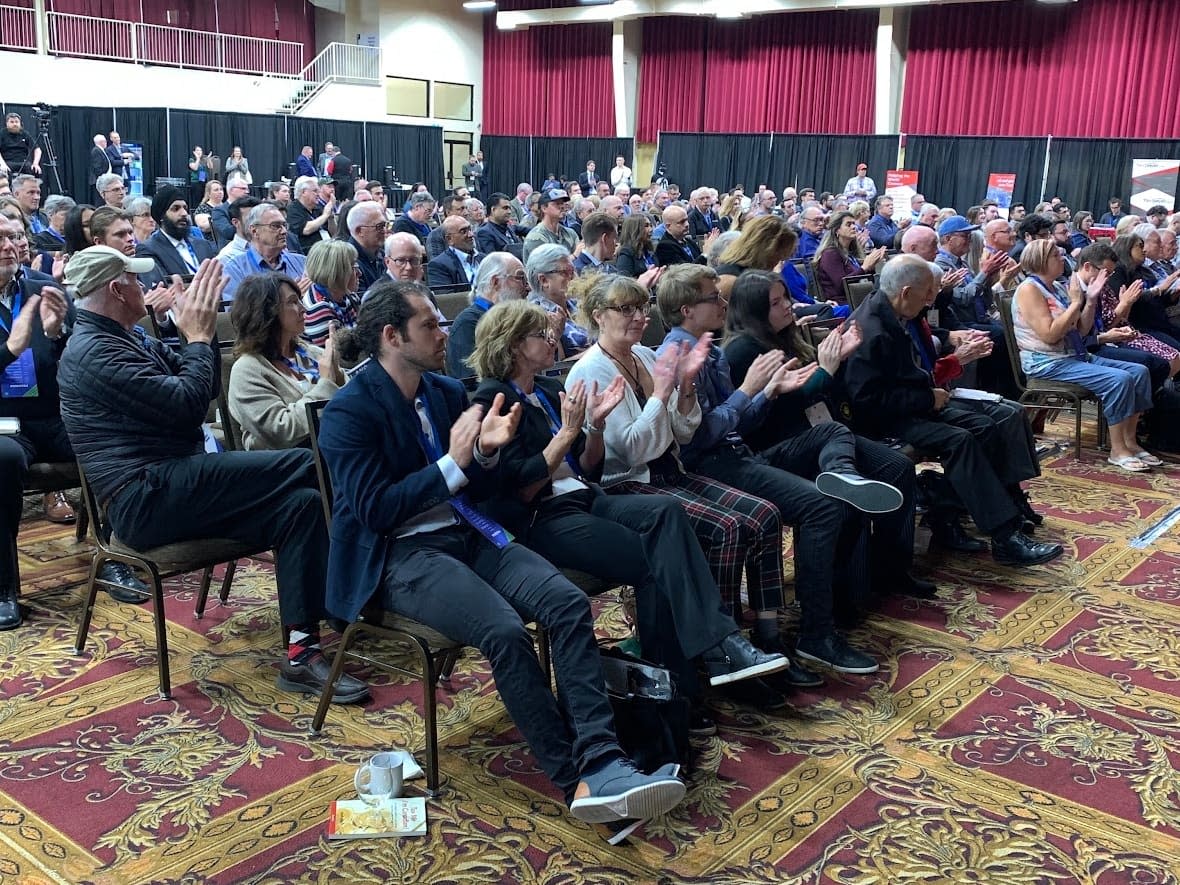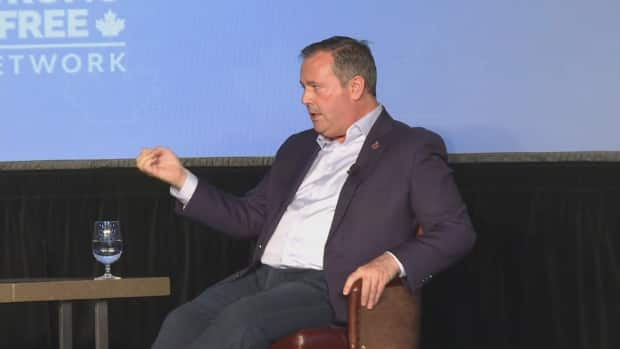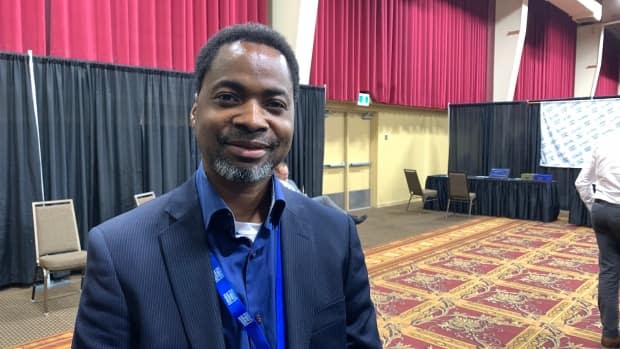Jason Kenney says he never intended to 'be in this gig for a long time'

Alberta Premier Jason Kenney gave some of his final comments as the province's leader Saturday, speaking at an event attended by the candidates running to replace him.
At a Canada Strong and Free conference in Red Deer, Alta., Kenney said he was proud of much of the legislation passed during his time as premier, but said he would have gone farther on healthcare reform, had the pandemic not quelled those efforts.
However, the province is moving forward with its chartered surgical initiative, which will contract surgeries out to the private sector, and will be publicly funded.
"We could have gone further and deeper into health reform had it not been for COVID. And I think Canadians are now waking up to the reality that we do need fundamental health reform," Kenney said.

He also said if he would have run for re-election — he wouldn't have stayed for long.
"I never intended to be here for a long time. Frankly it was always my intention if I'd gone on to the next election to leave, probably about a year to 18 months after that," he said.
"I was never intending to be in this gig for a long time."
Growing 'incivility'
Reflecting on the state of conservatism, Kenney said there is growing anger among the alt-right fuelled by social media conspiracy theories and "hypercharged" by the pandemic.
"Social media comes along 20 years ago and allows people with those kinds of attitudes to self-publish and then to find a virtual community online, and then to push each other into a constant state of anger," Kenney said.
He said that "liberal mainstream legacy media almost went out of their way to become disaffected from almost everybody right of centre."
That resulted in the advent of alt-right media to fill the market, he said.
"And for many of them, their business model is the monetization of anger. And the revenue only flows if people are angrier and angrier."
"I know this is an old fashioned sentiment, but I actually believe civility is a conservative value. And there is a growing sense of profound incivility. And it concerns me greatly," Kenney said.
He added that he fears conservatism could "become a caricature of a kind of nasty, angry populism that will lose consistently at the polls as well."
Duane Bratt, political science professor at Mount Royal University, said Kenney is "absolutely right" that alt-right media outlets fundraise by stoking anger.
"You're always running fundraising campaigns against the various enemies, trying to put you down and drawing up anger against the government. So, Kenney is exactly correct on that," he said.
Bratt added that, to Kenney's credit, he doesn't believe that Kenney appeared on any of those outlets while he was premier.
But he said the criticism also shows "an absolute lack of self-awareness."

"He was riding the same tiger, right? You know, the fight back strategy, the war room," he said, referring to the Canadian Energy Centre, which was created to rebut campaigns against Canada's oil and gas industry.
"Kenney himself has been stoking anger pretty much his entire career … the whole 2019 election campaign was all drumming up anger, the principle was the fight back strategy," Bratt said.
"Those angry voices that Kenney had harnessed are now against Kenney … And even though he might have been lacking self-awareness, he was accurate in that warning."
In May, Kenney announced his resignation as UCP leader after receiving 51.4 per cent approval of his leadership from UCP members.
Leela Aheer, Danielle Smith, Todd Loewen, Rebecca Schulz, Brian Jean, Rajan Sawhney and Travis Toews are all vying to be the next leader of the party.
Economy, healthcare among issues important to UCP voters
Some attendees showed up to hear from the contenders, and where they stood on the issues.
Rahim Mohamed, a Calgary student, said his vote is still undecided, and he wants to pick the person who has the best chance of winning the next provincial election.
He also wants to vote for someone who will focus on the economy.
"Finding a way to think longer term … plan for sort of a long term utilization of the incoming oil revenue and who has the best long term vision for growing and hopefully diversifying Alberta's economy," he said.
Gail Parks, a Red Deer resident, said she wants to see a change in the province's healthcare system.

"We've spent a tremendous amount of money on a system that is not working. For anyone to have to wait months and months and months for an MRI," she said.
"I'm a cancer survivor. If I hadn't been able to get early treatment, I probably wouldn't have survived."
Tunde Obasan, from Edmonton, said he's looking for a candidate who will focus on jobs and the economy.
"[Someone to make sure] Alberta is an environment where employers, job creators can find us a good environment to start a business or to move their businesses to, you know, and that will create more jobs and boost the economy in the long run."
The UCP will choose its new leader Oct. 6.

 Yahoo Movies
Yahoo Movies 
